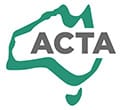Course Outcomes
Certificate IV in TESOL
What you will learn:Skip to Employment Possibilities >>
A TESOL Course can open global opportunities, allowing you to teach English anywhere regardless of what language is spoken (a lot of the time to students from various different language and cultural backgrounds in the one classroom!). You can use the skills you learn in the Course to teach either in classes or online ESL schools. The Certificate IV will teach you to: ☑ Create a culturally inclusive learning environment ☑ Use the genre and communicative approach to teach English ☑ Create activities and plan lessons ☑ Classroom management and learner engagement strategies ☑ Teach others to speak, listen to, read and write English ☑ Teach English grammar, spelling and pronunciation ☑ Evaluate English ability and monitor learner progress ☑ Create or select TESOL resources based on learning needs ☑ Specialised in a chosen elective area (see electives) *Based on 2020 independent National Centre for Vocational Education Research (NCVER) data
|
Want to teach English online?You can choose our elective unit: TESTEC001 - Use technology to assist language learning
|
Employment Possibilities
|
Certificate IV in TESOL - Employment Opportunities
In general, the types of employment opportunities after completing the Course are:
|
|
The positions open to you will vary depending on:
These factors will affect the potential employment opportunities that may be available to you after you complete a TESOL Course. Because this can vary so much between individuals, different countries and institutions, we recommend that you research the requirements for whatever country, and particular employment opportunities that interest you - one of the best ways to do this is by performing a job search. Some potential employment opportunities involving the delivery of accredited English Courses in Australia may only be possible where the graduate also hold additional qualifications, such as a Certificate IV in Training and Assessment. Bachelor's + Certificate IV in TESOL
If you have a Bachelor Degree (any area) + a Certificate IV in TESOL you may find a wider range of employment opportunities (depending on degree type). For example,
|
Frequently Asked Questions (FAQs)
Do you guarentee a job at the end?
No, but 83% of our graduates are employed or enrolled in further study (e.g. university) after training.
*Based on 2020 independent National Centre for Vocational Education Research (NCVER) data
Be careful with providers who claim to give you a job at the end - will they actually deliver or are they just trying to lure you in? Is it actually a job or just an interview? If it is a job, ask a lot about what sort of job it is, where it is and what payment you will get (and whether it is even enough to cover living costs in that country). Is it actually a job that you would want or is it a job that is difficult to fill with low pay and an undesirable location?
We focus on offering you a great course which is backed by our long standing, strong reputation in the TESOL industry. We make sure that when our graduates finish the course, they are fully equipped to confidently enter classrooms around the world (or online) and teach English.
*Based on 2020 independent National Centre for Vocational Education Research (NCVER) data
Be careful with providers who claim to give you a job at the end - will they actually deliver or are they just trying to lure you in? Is it actually a job or just an interview? If it is a job, ask a lot about what sort of job it is, where it is and what payment you will get (and whether it is even enough to cover living costs in that country). Is it actually a job that you would want or is it a job that is difficult to fill with low pay and an undesirable location?
We focus on offering you a great course which is backed by our long standing, strong reputation in the TESOL industry. We make sure that when our graduates finish the course, they are fully equipped to confidently enter classrooms around the world (or online) and teach English.
Can I do the Course 100% Online?
Yes! We even have online practical placements available with ESL learners who attend virtual classes (via video conferencing).
Can I Do my Prac Overseas?
Yes, If you find a suitable placement with an overseas institution (or are going to one of our class locations) then you can do your placement overseas.
If you choose to source your own placement organisation overseas, you will need to make sure there is:
If you choose to source your own placement organisation overseas, you will need to make sure there is:
- An experienced ESL teacher for you to observe (or you could do you observations online)
- A minimum of 5 genuine ESL learners in the class
- A qualified person to observe your teaching or permission to video yourself teaching the class
There seem to be sooo many TESOL Courses out there - how do I choose?
Go with your gut - if you want to do a course that will be worth something when you finish and avoid ending up with 'just a piece of paper', there are a few questions you need to think about before choosing:
What to check when comparing TESOL Courses:
To save you some time, here are the answers to those questions about us and our courses:
- What level is the Course? Is it the right level for what I want to do?
- Is the course accredited (endorsed by the Australian Government)? Is that important for what I want to do?
- Is the Course worth something overseas?
- Will the course meet the TESOL qualification requirements for English as a Second Language (ESL) teachers in Australia?
- Is the course delivered by a reputable registered training organisation? Or is it just a third party looking to get sign-ups?
What to check when comparing TESOL Courses:
- Beware of providers that claim they offer "Internationally accredited courses". There is no international body that accredits courses. Ask who the Course is accredited by. Has the Course got Government accreditation? If no, think twice. Read more about International Standards →
- Be careful! A cheap course may not always be worth something at the end.
- Add up the costs - some courses advertise a low fee, but then hit you with enrolment fees, practical placement fees, resource fees etc. and it ends up more expensive in the end.
- Beware of providers who claim to give you a job at the end -will they actually deliver or are they just trying to lure you in? Is it actually a job or just an interview? If it is a job, ask a lot about what sort of job it is, where it is and what payment you will get (and whether it is even enough to cover living costs in that country). Is it actually a job that you would want or is it a job that is difficult to fill with low pay and an undesirable location?
To save you some time, here are the answers to those questions about us and our courses:
- We offer both non-accredited and accredited TESOL Courses - the International TESOL Certificate is a non-accredited specialised training program for those who don't require an accredited one, but want a high quality course at a very affordable price.
- The accredited courses we offer are the 10695NAT - Certificate IV in TESOL (Teaching English to Speakers of Other Languages) and 10688NAT - Diploma of TESOL (Teaching English to Speakers of Other Languages) and these courses can be verified on the Australian Government's Website training.gov.au
- We are an Australian Registered Training Organisation, RTO Number: 30173 - see http://training.gov.au/Organisation/Details/30173 - this means we undergo strict monitoring by the Australian government. It also gives us recognition overseas as being a quality training provider.
- Our TESOL courses consist of the equivalent of 100 hours of face to face contact. This is achieved for every student that completes any LTi TESOL course (of any delivery format) through the provision and requirements of the course materials which have been developed and designed for Distance Education in conjunction with the web based support LTi provides.
- We require all our students to complete practical placement with supervised practice teaching of real English as a Second Language students in an actual classroom.













